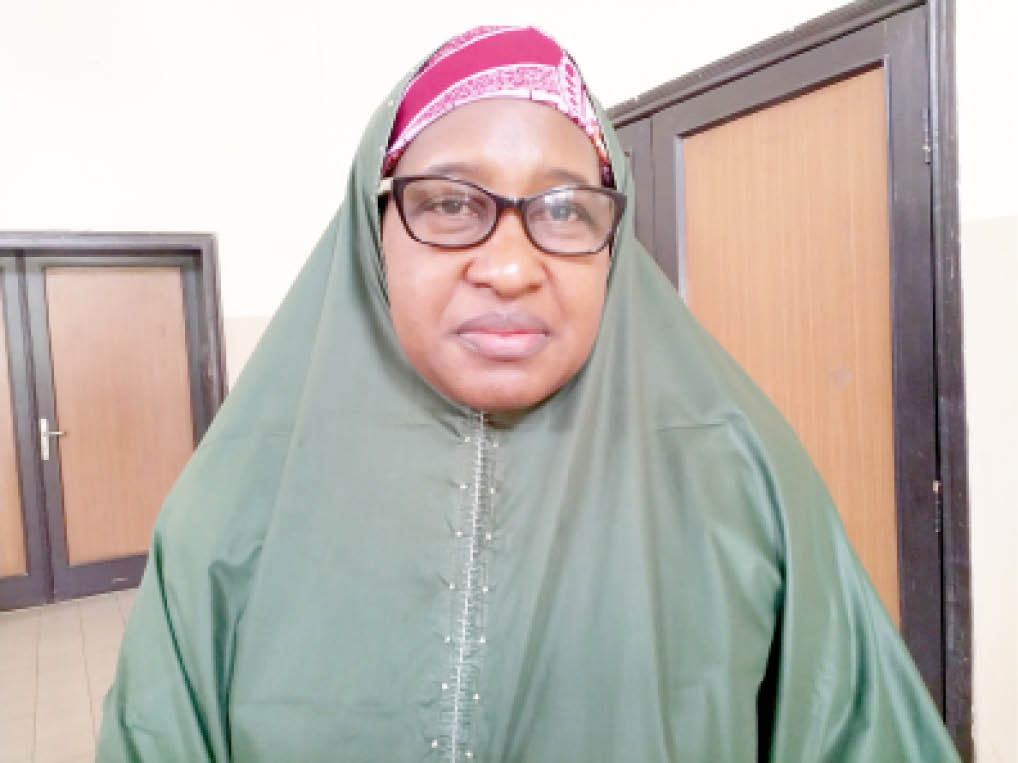Prof Sa’adatu Hassan Liman is the Deputy Vice Chancellor, Administration, Nasarawa State University, Keffi. In this interview she speaks on the state of the girl-child and development in the North, how she copes as a female deputy vice chancellor, and other issues.
As a northern woman and deputy vice chancellor of a university, how has it been?
Summarily, I would say it has been a hefty responsibility. As a deputy vice-chancellor, I have been reporting to the vice chancellor and at times, deputising in his absence. So I already have a mandate to assist the vice chancellor in providing positive leadership, in addition to implementing the university’s action plans towards achieving its strategic academic goals, vision and mission.
I also chair a number of strategic university committees. This is in addition to being the deputy chairperson of the University Senate. As such, the job is tasking, but nevertheless, it is something I have been groomed to handle. By this, I mean that before one is appointed to such position, one must have, preferably, been assigned to hold lower administrative responsibilities.
started as an examination officer and class coordinator, after which I became the Head of the Islamic Studies Unit. I was then appointed as the acting Head of Religious Department, and later, acting head of Islamic Studies Department.
I held two positions concurrently throughout my role as Head of Department. While I was Head of Religious Department, I was also holding the position of Assistant Dean of Student Affairs.
It was before I concluded my tenure as Head of Islamic Studies Department/Deputy Dean, Student Affairs that I got appointed as Deputy Vice Chancellor, Academics.
When I concluded my tenure as DVC, Academics, I went for a sabbatical. On my return, I was appointed Director of Research, and while on that position, I was appointed DVC Administration, the current office I am occupying.
During this sojourn, I also climbed academically from the position of an assistant lecturer to the professorial cadre in 2017, within the span of 15 years.
So, I did not just gate-crash into this position, I but went through a gradual journey that has accorded me the opportunities to accumulate ample requisite experiences in the course of my rising. I have indeed been able to build a career that has prepared me for the present position.
Considering the position of women in the society, especially in the North, how are you coping, leading or running the affairs of an institution seen as more of men’s job?
In the Nigerian traditional system, men are the breadwinners of the family; therefore, logically dominate the workforce. The northern Nigerian societies are more reserved when it comes to women participation in public life due to some significant cultural beliefs.
However, I believe our societies have evolved. What was hitherto seen as an exclusive enclave of men is now accessible by women too. In the current typical instances, there are female commissioners, permanent secretaries and company directors.
There are, of course, vice chancellor positions occupied by women in the north and from the North, surrounded by men, leading men and respected by men.
Prof Fatima Batul Mukhtar was a vice chancellor in Jigawa, Hajiya Fatima Binta Muhammad was a registrar Bayero University, Kano (BUK). A lot of others are coming up as heads of departments, deans and directors in northern higher institutions of learning.
Like I said earlier, one attains these positions by climbing the ladder. As such, as a woman is climbing, she is gaining more wisdom, respect and acceptance in her organisation, government circle and her society in general.
It is just like our African traditional values, when a woman is growing she is gaining respect and positioned into taking elderly roles in the society. This is the same with the modern society. When you reach that stage, the men naturally accord you the necessary respect and cooperation you need to succeed.
So, I have built my career. There is hardly a position I did not hold in the academic/administrative arena, to the extent that I think I have gained acceptance into these roles by both men and women.
You got married immediately after secondary school, how then did you further your studies to attain a professorship cadre?
Both my husband and myself came from well-educated families. And in both cases, we are not the eldest children and not the first to be educated, using the same cultural setting. That means we, the female children, are married off after our secondary school education, and we continue in our husband’s houses.
With this kind of background, it is not difficult for me to further my education and develop my career with the help of my husband and my parents, but we should not take their understanding for granted.
I must say that with an understanding family, what seems to be difficult is made manageable. Throughout my studentship, I was also blessed by giving birth to four children; during my undergraduate and master’s. I delivered the fifth during my PhD studies. I started work only after securing my PhD admission, so that gave me a leverage to be mostly at home for my children at their early growing periods.
What I did was to go to school only for my lectures. Immediately after lectures, I usually returned home to carry out my primary responsibilities as a wife and mother; that is, taking care of my home and children. In between, I found enough time for my studies at home.
My husband has always been patient, understanding and helpful. Whenever the situation was overpowering, our parents always came in to help.
There were many occasions when I would travel out and my husband was left with the children. My mother and relatives always extended their helping hands.
Anyway, let us get one thing crystal clear: I am not saying furthering one’s education while married after secondary school and developing one’s career is easy. I am saying that when you are blessed to have an understanding husband, children and parents, the tendencies to overcome any difficulty and manage your life are enormous.
Moreover, the truth is that, considering our modern way of life, that is being a student or a working modern woman at whatever age it is, the woman needs the support and understanding of her husband, children, parents, relatives and even the society.
I thank the Almighty Allah that I had that enormous support while growing up. I am giving my best to reciprocate that support, to both my immediate family members and members of the society who are in need.
Was there any time you considered quitting your education pursuit as a mother and wife due to pressure?
Quitting my educational pursuit? Never. If there was any time I would have done that it would have been in 100-level.
My first and only child then was admitted to a hospital and my husband was also admitted to a different hospital. I had my mother staying with my child, while my husband’s brothers were always at his hospital looking after him.
My father-in-law ensured that we had enough assistance, both in cash and kind. At the end, however, I failed some of my exams. All those travails and tribulations did not make me change my course of academic life, and we moved on. Alhamdulillaah, I overcame that and even similar challenges. One of the results is that today, I am not only a professor but also a deputy vice chancellor.
The point here is that quitting education has never been an option in our family. It is a duty for all of us to perform. That is the reason many of us in the family are second degree holders. Here, I would like to acknowledge the enormous role played by my parents, especially my father, towards educating all his children. I pray for Allah to reward them with Jannatul Firdaus for their noble deeds.
How were your children copping with your education and work pursuit?
It is very important to understand that bringing up children and nurturing them to maturity is not only the duty of their parents, but also that of their grandparents, neighbours, relatives and the society.
My children are my primary responsibility, but at certain times, and secondarily, a mother needs extra hands, even if she is not engaged in formal work.
Whenever I am not at home, I make sure that somebody reliable is there to take care of the children. That notwithstanding, I ensure that I minimise my outings to the barest minimum, to look after my home. Therefore, for the most part of the time they spend at home, I am with them. Remember, they also attended Islamiyyah and non-Islamiyyah schools every day. Alhamdulillah, they are all graduates and married, except the last one.
The North is still not where it is expected to be in terms of education. Does it mean that it cannot find a way out of the labelled ‘educationally backward region’?
It is very significant to clarify a common, subsisting misconception embodied in the phrase you used, “educationally backward region.”
It is an incontestable fact that the European colonialists and missionaries came to northern Nigeria (or perhaps Hausa/Fulani lands historically) and met us already highly educated – Islamic education.
Our socio-political structures have been highly developed based on Islamic templates; even European history books attest to that. Hence, I will answer your question, assuming you are referring to what is referred to as “Western education.”
However, in terms of Western education, it may not presently be where it should be. It is statistically evident that there is much improvement in terms of school enrolment and the number of students graduating with at least first degree. You can check the statistics of the North over the years in that regard. Therefore, the North is really trying to see that it reaches the target.
However, there are a number of factors that have perhaps constituted hindrances to the realisation of the expected target. Examples of such factors are poverty, early marriage, insecurity and other cultural factors. Nevertheless, we are certainly moving; change is eminent, though slow.

 Join Daily Trust WhatsApp Community For Quick Access To News and Happenings Around You.
Join Daily Trust WhatsApp Community For Quick Access To News and Happenings Around You.


